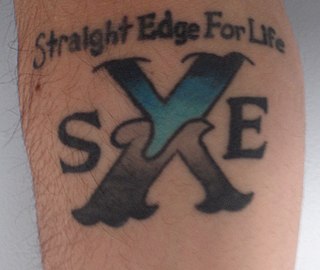Business ethics is a form of applied ethics or professional ethics, that examines ethical principles and moral or ethical problems that can arise in a business environment. It applies to all aspects of business conduct and is relevant to the conduct of individuals and entire organizations. These ethics originate from individuals, organizational statements or the legal system. These norms, values, ethical, and unethical practices are the principles that guide a business.

Corporate social responsibility (CSR) or corporate social impact is a form of international private business self-regulation which aims to contribute to societal goals of a philanthropic, activist, or charitable nature by engaging in, with, or supporting professional service volunteering through pro bono programs, community development, administering monetary grants to non-profit organizations for the public benefit, or to conduct ethically oriented business and investment practices. While once it was possible to describe CSR as an internal organizational policy or a corporate ethic strategy similar to what is now known today as Environmental, Social, Governance (ESG); that time has passed as various companies have pledged to go beyond that or have been mandated or incentivized by governments to have a better impact on the surrounding community. In addition national and international standards, laws, and business models have been developed to facilitate and incentivize this phenomenon. Various organizations have used their authority to push it beyond individual or even industry-wide initiatives. In contrast, it has been considered a form of corporate self-regulation for some time, over the last decade or so it has moved considerably from voluntary decisions at the level of individual organizations to mandatory schemes at regional, national, and international levels. Moreover, scholars and firms are using the term "creating shared value", an extension of corporate social responsibility, to explain ways of doing business in a socially responsible way while making profits.
Ethical consumerism is a type of consumer activism based on the concept of dollar voting. People practice it by buying ethically made products that support small-scale manufacturers or local artisans and protect animals and the environment, while boycotting products that exploit children as workers, are tested on animals, or damage the environment.
Richard John Adams is a British businessman and social entrepreneur. He is the founder of the UK fair trade organisations Tearcraft and Traidcraft and of a number of social enterprises which promote environmentally responsible and ethical business.

Social responsibility is an ethical framework in which a person works and cooperates with other people and organizations for the benefit of the community.
Dollar voting is an analogy that refers to the theoretical impact of consumer choice on producers' actions by means of the flow of consumer payments to producers for their goods and services.

Juliet B. Schor is an American economist and Sociology Professor at Boston College. She has studied trends in working time, consumerism, the relationship between work and family, women's issues and economic inequality, and concerns about climate change in the environment. From 2010 to 2017, she studied the sharing economy under a large research project funded by the MacArthur Foundation. She is currently working on a project titled "The Algorithmic Workplace" with a grant from the National Science Foundation.

Anti-consumerism is a sociopolitical ideology that is opposed to consumerism, the continual buying and consuming of material possessions. Anti-consumerism is concerned with the private actions of business corporations in pursuit of financial and economic goals at the expense of the public welfare, especially in matters of environmental protection, social stratification, and ethics in the governing of a society. In politics, anti-consumerism overlaps with environmental activism, anti-globalization, and animal-rights activism; moreover, a conceptual variation of anti-consumerism is post-consumerism, living in a material way that transcends consumerism.

An ethical bank, also known as a social, alternative, civic, or sustainable bank, is a bank concerned with the social and environmental impacts of its investments and loans. The ethical banking movement includes: ethical investment, impact investment, socially responsible investment, corporate social responsibility, and is also related to such movements as the fair trade movement, ethical consumerism, and social enterprise.
Ethical living is the philosophy of making decisions for daily life which take into account ethics and moral values, particularly with regard to consumerism, sustainability, environmentalism, wildlife and animal welfare.
Sustainability advertising is communications geared towards promoting social, economic and environmental benefits (sustainability) of products, services or actions through paid advertising in media in order to encourage responsible behavior of consumers.

Socially responsible investing (SRI), social investment, sustainable socially conscious, "green" or ethical investing, is any investment strategy which seeks to consider both financial return and social/environmental good to bring about social change regarded as positive by proponents. Socially responsible investments often constitute a small percentage of total funds invested by corporations and are riddled with obstacles.
Socially responsible marketing is a marketing philosophy that a company should take into consideration; "What is in the best interest of society in the present and long term?"

Straight edge is a subculture of hardcore punk whose adherents refrain from using alcohol, tobacco and recreational drugs, in reaction to the excesses of punk subculture. Some adherents refrain from engaging in promiscuous sex, follow a vegetarian or vegan diet, and do not use caffeine or prescription drugs. The term "straight edge" was adopted from the 1981 song "Straight Edge" by the hardcore punk band Minor Threat.
Supply-chain sustainability is the impact a company’s supply chain can make in promoting human rights, fair labor practices, environmental progress and anti-corruption policies. There is a growing need for integrating sustainable choices into supply-chain management. An increasing concern for sustainability is transforming how companies approach business. Whether motivated by their customers, corporate values or business opportunity, traditional priorities such as quality, efficiency and cost regularly compete for attention with concerns such as working conditions and environmental impact. A sustainable supply chain seizes value chain opportunities and offers significant competitive advantages for early adopters and process innovators.
Sustainability standards and certifications are voluntary guidelines used by producers, manufacturers, traders, retailers, and service providers to demonstrate their commitment to good environmental, social, ethical, and food safety practices. There are over 400 such standards across the world.

Activism consists of efforts to promote, impede, direct or intervene in social, political, economic or environmental reform with the desire to make changes in society toward a perceived greater good. Forms of activism range from mandate building in a community, petitioning elected officials, running or contributing to a political campaign, preferential patronage of businesses, and demonstrative forms of activism like rallies, street marches, strikes, sit-ins, or hunger strikes.
Green consumption is related to sustainable development or sustainable consumer behaviour. It is a form of consumption that safeguards the environment for the present and for future generations. It ascribes to consumers responsibility or co-responsibility for addressing environmental problems through the adoption of environmentally friendly behaviors, such as the use of organic products, clean and renewable energy, and the choice of goods produced by companies with zero, or almost zero, impact.
Animal rights are closely associated with two ideologies of the punk subculture: anarcho-punk and straight edge. This association dates back to the 1980s and has been expressed in areas that include song lyrics, benefit concerts for animal rights organisations, and militant actions of activists influenced by punk music. Among the latter, Rod Coronado, Peter Daniel Young and members of SHAC are notable. This issue spread into various punk rock and hardcore subgenres, e.g. crust punk, metalcore and grindcore, eventually becoming a distinctive feature of punk culture.
Sarah A. Soule is an American sociologist who is the Morgridge Professor of Organizational Behavior and director of the Center for Advanced Study in the Behavioral Sciences at Stanford University. She is known for her work on organizational behavior, social movements, political sociology, and policy change and diffusion.








